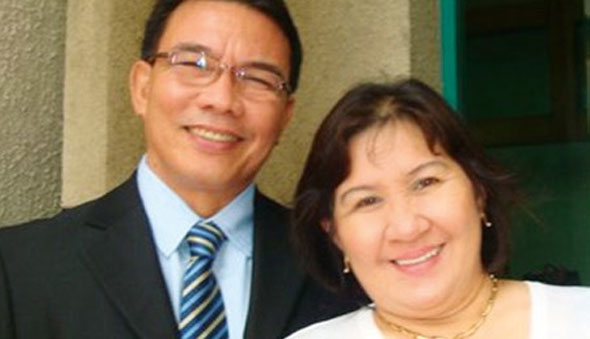Pinay Pathfinder
A life coach about her job and about life as a professional in the UK
By Dr. Joy Barredo as told to Maan D’Asis Pamaran
When was the last time you were happy? That is one of the most important questions I ask my clients. It may seem innocuous enough, but some of my clients realize that they haven’t really been happy in years. That is when I step in to help them.
Life coaching, which is what I do, is often confused with counseling. But unlike counseling, wherein a therapist sees a patient for six to 12 months, and tries to resolve something in the past such as a bad childhood, life coaching focuses on a person’s present and future. This way, I help clients find answers in themselves, with the aim of achieving, instead of simply resolving something. Therapists will try to help patients unearth the reasons behind behavioral problems or addictions. In life coaching, we tend to look at obstacles as goals, so clients may come to me because they want to get a particular job or to lose weight.
Also, unlike counseling, where you have to have a degree in psychology or psychiatry, I was a Bachelor of Arts graduate from the De La Salle University, majoring in Literature and Communication Arts. I also have a doctorate in Language and Literature.
The doctor is in
I was already doing something like life coaching in Manila, but it was more of an image consultancy job while I was teaching at La Salle. My clients there were ones who wanted to improve how they presented themselves to others. For example, I had clients, who were very successful, but sounded like they had not finished high school. I had politicians coming to me because they wanted to sound more sincere. An expat, who worked as a managing director of a company, wanted to be able to reach out to his employees better. I had a lot of clients who were celebrities.
It was only when I got to the UK with my then fiancée, and now husband Thomas, that I realized that there was actually a term for what I was doing – life coaching – and that it is quite popular not only in Europe, but it is a huge business in the United States. People actually train for this by attending courses at city colleges and universities. Because of its popularity, this profession is quite lucrative. On a monthly basis, my professional fee is 120 pounds for three 45-minute sessions in a month. For couples who want to work on their relationship, the fee is 170 pounds a month for three one-hour sessions, and for team coaching, it is 280 pounds a month.
This profession has also made me quite visible in Europe, too. I was interviewed on a very popular show in Poland called Dzień Dobry TVN on the 7th of October 2007. You see, in 2005 I went to Berlin; in 2006, Strasbourg, France; and in 2007, Warsaw, Poland. This was because I attended Volonteurope, a four-day conference with workshops that is attended by around 100 people from 17 different countries in Europe and the US. Each year I had run a workshop for them. The first year in Berlin, I was even one of four who hosted a dinner (paid for by the conference organizers) as an expert. They called it “Dinner with an Expert.” My expertise was on diversity. Then last year, I was invited to come on a show in Warsaw, which was on national TV. And I was also interviewed for TV while in Warsaw, which I think was for a news program. In the UK, I’m often on the radio; aside from the fact that I present my own radio show called Usapang Pinoy every Saturday. I’m also often on the BBC.
If someone wanted life coaching with me in the Philippines, they can find out how it works and how much it will cost by getting in touch through my Web site (www.thegoddessinyou.co.uk) or e-mail (joy@coachcom.org). I think in the Philippines, life coaching as a practice is virtually non-existent, though I could be wrong. There are a number who pass themselves off as life coaches, but in fact they’re psychotherapists, counselors, mentors, or trainers.
It is a particular discipline where one needs to train and get qualified as a life coach. If they want to train as a life coach, they can look up courses in the UK and the US. Some may find online courses, but it’s really not the same. It takes more than a piece of paper before one can trade as a life coach. They need to practice on their course mates with their tutor’s help as well as on other willing subjects. At the same time they need to be properly assessed and evaluated. A life coach needs to be skilled enough to know when a particular client needs life coaching or counseling, and be honest enough to refer them on to someone else if the client’s issue is beyond their scope.
In the UK, I am busy conducting workshops and meeting with clients, but I also have a day job, and it is as a diversity coordinator at a non-government organization that helps black and minority groups. I find it very fulfilling being able to help people. One of the things I do at the center is to give life coaching sessions free of charge. We help survivors of domestic violence, or those who have been abused by their employers. Right now, I am working with the BBC on a documentary for this.
Missing Manila
My transition to a new life in the UK was not without challenges. One difficulty I have is adjusting to the lifestyle. For instance, in Manila, I had a housekeeper who comes by to help with the chores at home. I don’t have that here. Also, it’s hard to build and maintain friendships here because of this. When 5pm comes, everyone’s rushing home to their families because they have to prepare dinner, then wash the dishes and tidy up. By the time that’s all over, people are too knackered to do anything else.
On weekends, people are busy doing the laundry, catching up with housework, doing the grocery, etc. Also, phone calls are quite expensive. There is no flat rate, unlike in the Philippines. So when you ring someone or someone rings you, they’re always in a rush. The conversation is over in a minute or two. I’m the kind of person who likes to keep in touch and spend time catching up with friends. In Manila, I enjoy being able to ring friends at whatever time day or night. Here, one can’t do that unless they’re really close.
Advice for migrant workers
Another challenge I would say is that racial discrimination is still very much alive in the UK, and I see as lot of our kababayans falling victim to it. Some of the challenges I faced when I first came was the discrimination and prejudice people have against Filipinas. They seem to think that every Pinay is after a British husband or that they’re mail-order brides. The minute I open my mouth though, they realize that I am well educated and quite cosmopolitan.
I am not an OFW nor am I an economic migrant or a migrant worker. I’m an immigrant. When deciding in 2003 what visa to apply for (so Thomas, who works as a computer security consultant, and I could build a life together in the UK) we considered getting for me a fiancée visa. But since I’m a very independent woman and wanted to come here on my own steam, I went for the “Highly Skilled Migrant Programme,” which meant that I could go to the UK without any job offer and would have a year in which to find a job, any job I fancied. The HSMP means one has to garner enough points based on their qualifications, experience, skills, and contribution to their field of expertise. The applicant also needs to prove that they can support themselves financially in the UK while looking for work.
Migrant workers coming from the Philippines are tied to their work permit and employer. They’re not allowed to stay in the country if they lose their jobs. If they do resign or get sacked, they only have 28 days in which to look for another employer in the same industry or field and a job that gives them the same salary and the same type. So if they come here as nurses, they can’t do any other kind of job, but nursing. If they come here as a chef, that’s the only job they can have. However, if they go back to the Philippines, then they can apply for another type of job.
This is why there are a lot of Filipinos who are being exploited in the UK. They go abroad with a salary offer of, say 20,000 pounds a year, but when they get there, they receive much less. They leave the Philippines not knowing what their rights are and they get abused by their employers. If they come to the UK through legitimate means, then there would be no problem. But there are many who come under false pretenses. I would advise our OFWs to read their contract carefully.



